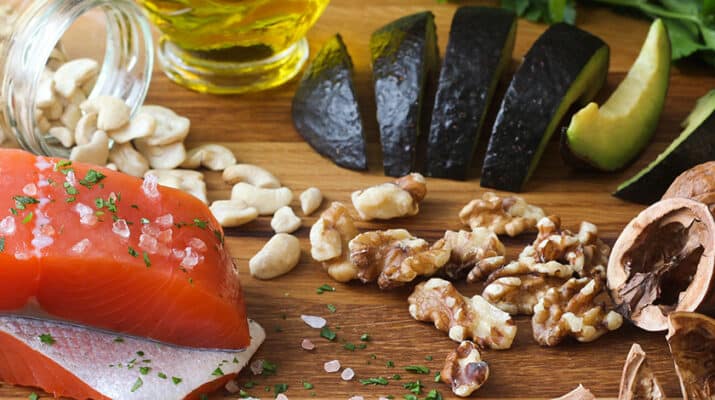By Deborah Jeanne Sergeant
Numerous studies have linked the Mediterranean diet to a reduction in prostate cancer risk and improved outcomes for men diagnosed with prostate cancer. While typically touted for its benefits in losing weight and improving heart health, the effect appears muddled as far as its effect on the prostate.

“It is important to conduct more studies focusing on risk factors for prostate cancer by stage and grade,” said Ying Wang, Ph.D. and senior principal scientist at the American Cancer Society. “In addition, the most recent nutrition and physical activity guidelines from the American Cancer Society found that men diagnosed with prostate cancer who consumed a Mediterranean dietary pattern tend to have lower risk of death from any cause.”
This may suggest that the Mediterranean diet may promote overall good health in some men, regardless of the presence of prostate cancer.
“While some evidence suggests that following a Mediterranean diet may help reduce the risk of prostate cancer in certain populations, it is important to replicate these findings in other populations and look at different prostate cancer outcomes,” Wang said. “Furthermore, it is essential to recognize that diet is just one of many factors that can contribute to the development of cancer.”
She added that other factors, such as age, family history and race or ethnicity cannot be controlled. However, “avoiding tobacco use, maintaining a healthy body weight, engaging in regular exercise and limiting alcohol consumption, also help to lower the risk of developing prostate cancer.”
The Mediterranean diet loosely aligns with the dietary portion of the American Cancer Society Guidelines for Diet and Physical Activity, which emphasizes a mostly plant-based diet.
“Men who are at elevated risk of prostate cancer may want to discuss their diet and other lifestyle factors with their urologist or other healthcare provider, particularly a registered dietitian nutritionist to help reduce their risk,” Wang said.
Why the Mediterranean diet appears to reduce the risk of developing cancer has to do with the type of foods consumed — and those that aren’t.

Bill Krellner, 18-year prostate cancer survivor and group leader of Zero/US TOO of WNY, supports the healthful eating patterns of the Mediterranean diet. The group frequently hosts guest speakers, including physicians and dietitians to help diagnosed men and their loved ones better understand prostate cancer.
“Recently, U.S. News & World Report ranked 39 different diets in 2023 and the Mediterranean diet came out on top in several categories,” Krellner said. “It was ranked the best and number one for bone and joint health, family friendly, healthy eating and best plant-based diet. It was second to DASH diet for heart healthy. It’s supposed to be good for losing weight and improving healthy aging and sexual function and to reduce the physiological effects of stress. Because of this, they say that most men involved with prostate cancer should definitely look into this kind of diet.”
He also referenced research of men with prostate cancer who on the Mediterranean diet and a control group of those not on the diet.
“If someone was going through radiation for prostate cancer, these people were not affected by the side effects as much on the Mediterranean diet,” Krellner said.
Healthful foods appear to help lower the risk of more aggressive prostate cancer. Krellner said that aspects of the diet include nuts, a variety of fruits and vegetables, olive oil, fish, and whole grains.
“I know diagnosed men on the diet whose PSAs are dropping,” Krellner said.
The prostate gland produces prostate-specific antigen, or PSA. A blood test can measure the level of PSA and indicate whether the cancer is advancing or remaining stable. Diagnosed men who choose active surveillance have PSA testing periodically to monitor their cancer.
In addition, men should avoid alcohol or those who do should limit their consumption to no more than two servings daily. The two-per-day limit for men who drink cannot be rolled over for a weekend binge. It’s even better to eliminate alcohol. Processed foods, cured meat and sugar should be eliminated and red meat should be minimized. Dairy should be consumed in moderation — one to two servings daily — as high dairy intake is associated with lower prostate health. Men should consider alternative sources of calcium like leafy greens, beans or bone broth or supplements.
The Mediterranean diet’s effect could be caused by enhancing the immune system along with reducing inflammation, which offers the body the best chances against disease.
Making just a few dietary tweaks like adding a “superfood” to an unhealthful diet does not represent a silver bullet for preventing or beating prostate cancer.
“Forty-two percent of newly diagnosed cancers are potentially avoidable because of lifestyle,” Krellner said.
Eating an overall healthful diet is part of a healthful lifestyle, along with receiving regular care from a healthcare provider, sufficient aerobic and resistance exercise, adequate sleep, stress management and avoiding substance use, including tobacco.

